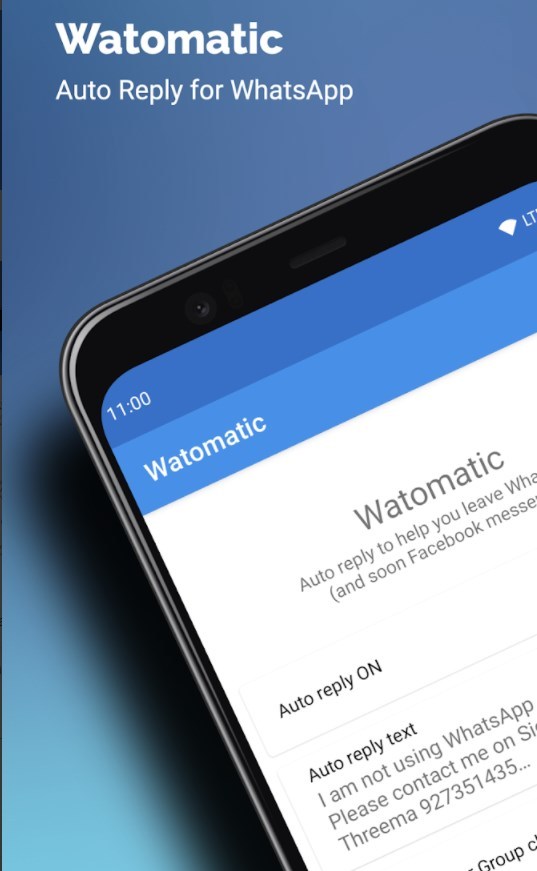#I LIKE TRAINS – Kompromat
Text
I'm afraid we must insist
We must insist on silence
You'll need a drink to get through this
I'm afraid we must insist on silence
I have eyes on everyone
You'd consider leaning on
You'll need a drink to get through this
I'm afraid we must insist on silence
4 notes
·
View notes
Note
DIRECTOR'S CUT!! i would like to humbly request one moment you would like to discuss / give us insight on from each of the lacuna triptych (<- hoping that's the right word) if that is not too much <3 if that's too many things then i humbly ask specifically after transference, (<- off the top of my head the last one? if i'm wrong please obliterate me with laser eyes)
🚨 TRANSFERENCE MENTIONED 🚨
honestly this fic was a massive struggle to write. as you know i am always dogged by endings, tying up loose threads, etc. and this was a particularly challenging one given that kompromat was kind of a sleeper hit and adieu adieu drove traffic due to the E rating lmao. part of me wanted to do a layup and just write about them fucking nasty after they admit they recognize each other but something about that felt a bit...sour? to me. i have a mental disease where i am obsessed with the rotten and irredeemable and. actually im getting away from myself hang on. okay so the part i wish to discuss is below:
"Are you tired?" Light asked.
"Tired?" L repeated, his gaze trained on the ceiling. "No. I'm not tired." He turned his head. Their faces were close enough that L's features became distorted, coming back into focus at very different angles as Light shut each eye in turn. "Are you tired?"
"No," Light yawned. "I'm not tired."
so as the movie watchers among you may have surmised this entire series is based on my undying love for eternal sunshine of the spotless mind which is one of the best movies of all time imo. specifically, this scene: https://www.youtube.com/watch?v=tIT3kcZMgQ8
"Please let me keep this memory, just this one."
ask me for the director's cut
1 note
·
View note
Audio
The Quaker Goes Deaf - Playlist 22.35
Pernice Brothers--7:30--The World Won't End
Wet Leg--Piece Of Shit--Wet Leg
Built To Spill--Living Zoo--Untethered Moon
Ty Segall--Take Care (To Comb Your Hair)--Ty Segall
Dex Romweber Duo--So Sad About Us--Images 13
DM3--Far From Here--One Time, Two Times, Three Red Light
Transona Five--Alcological--Transona Five
All Them Witches--Internet--Sleeping Through The War
The Quarter After--Your Side Is Mine--The Quarter After
The Bevis Frond--Hail The Child Philosopher--London Stone
Fufanu--Gone For More--Sports
Japan--Communist China--Adolescent Sex
I Like Trains--The Truth--Kompromat
The Men--Open Your Heart--Open Your Heart
Muck and the Mires--Candy Apple Red--Dial M For Muck
The Singles--Maybe He's The One--Sweet Tooth
Will Courtney--Take You Away--Crazy Love
Le Almeida--Cancer Dos Tropicos--Paraleloplasmos
Wipers--The Lonely One--Over The Edge
King Buffalo--Eta Carinae--Dead Star
3 notes
·
View notes
Text
I LIKE TRAINS: The Spectacle
I LIKE TRAINS: The Spectacle
I LIKE TRAINS es una banda que llegara anuestra audiencia con la noticia de ser el primer talento firmado por Atlantic Curve, teniendo en KOMPROMAT, su más reciente álbum, una absoluta revelación de la situación global durante el año más caótico para la humanidad en lo que va del siglo, colocándose como uno de nuestros 20 Discos para sobrevivir al Fin del Mundo, sustentado en sencillos cómo Dig…

View On WordPress
0 notes
Text
Release Rundown – BULLY, Bright Eyes and I LIKE TRAINS
Release Rundown – BULLY, Bright Eyes and I LIKE TRAINS

Words: Ben Forrester
(Photo credit: Angelina Castillo)
Here we are! Back again with our release rundown for the week, reviewing some sweet new records ready for your aural consumption. As we always like to gently remind you, these releases should be available to buy on the artists web stores as well as at your favourite local record shop.
Bright Eyes – ‘Down In The Weeds, Where The World Once Was’
View On WordPress
#Album Review#Alicia Bognanno#Atlantic Curve#Birthday cake for breakfast#Bright Eyes#Bully#Conor Oberst#Down in the Weeds Where the World Once Was#I LIKE TRAINS#John Congleton#KOMPROMAT#Michael Connolly#Sub Pop Records#SUGAREGG
0 notes
Text
Watomatic, for lower Whatsapp switching costs

Any discussion of monopolization of the web is bound to include the term “network effects,” and its constant companion, “natural monopolies.” This econojargon is certainly relevant to the discussion, but really needs the oft-MIA idea of “switching costs.”
A technology has “network effects” when its value grows as its users increase, attracting more users, making it more valuable, attracting more users.
The classic example is the fax machine: one fax is useless, two is better, but when everyone has a fax, you need one too.
Social media and messaging obviously benefit significantly from network effects: if all your friends are on Facebook (or if it’s where your kid’s Little League games are organized, or how your work colleagues plan fun activities), you’ll feel enormous pressure to join.
Indeed, in these days of Facebook’s cratering reputation, it’s common to hear people say, “I’m only on FB because my friends are there,” and then your friends say, “I’m only there because you are there.”
It’s a form of mutual hostage-taking.
That hostage situation illustrates (yet) another economic idea: “collective action problems.” There are lots of alternatives to Facebook, but unless you can convince everyone on Facebook to pick one and move en masse, you’ll just end up with yet another social account.
This combination of network effects and collective action problems leads some apologists for tech concentration to call the whole thing a “natural monopoly” — a system that tends to be dominated by a single company, no matter how hard we try.
Railroads are canonical “natural monopolies.” Between the costs of labor and capital and the difficulty in securing pencil-straight rights-of-way across long distances, it’s hard to make the case for running a second set of parallel tracks for a competing company’s engines.
Other examples of natural monopolies include cable and telephone systems, water and gas systems, sewer systems, public roads, and electric grids.
Not coincidentally, these are often operated as public utilities, to keep natural monopolies from being abused by greedy jerks.
But the internet isn’t a railroad. Digital is different, because computers are universal in a way that railroads aren’t — all computers can run all programs that can be expressed in symbolic logic, and that means we can almost always connect new systems to existing ones.
Open up a doc in your favorite word processor and choose “Save As…” and just stare in awe and wonder at all the different file-formats you can read and write with a single program. Some of those formats are standardized, while others are proprietary and/or obsolete.
It’s easier to implement support for a standard, documented format, but even proprietary formats pose only a small challenge relative to the challenge presented by, say, railroads.
Throw some reverse-engineering and experimentation at a format like MS DOC and you can make Apple Pages, which reads and writes MS’s formats (which were standardized shortly after Pages’ release, that is, after the proprietary advantage of the format was annihilated).
This is not to dismiss the ingenuity of the Apple engineers who reversed Microsoft’s hairball of a file-format, but rather, to stress how much harder their lives would have been if they were dealing with railroads instead of word-processors.
During Australia’s colonization, every state had its own governance and its own would-be rail-barons. Each state laid its own gauge of rail-track, producing the “multi-gauge muddle” — which is why, 150+ years later, you can’t get a train from one end of Oz to the other.
Hundreds of designs for interoperable rolling stock have been tried, but it’s proven impossible to make a reliable car that retracts one set of wheels and drops a different one.
The solution to the middle-gauge muddle? Tear up and re-lay thousands of kilometers of track.
Contrast that with the Windows users who discovered that Pages would read and write the thousands of documents they’d authored and had to exchange with colleagues: if they heeded the advice of the Apple Switch ads, they could buy a Mac, move their files over, and voila!

Which brings me to switching costs. The thing that make natural monopolies out of digital goods and services are high switching costs, including the collective action problem of convincing everyone to quit Facebook or start using a different word-processor.
These switching costs aren’t naturally occurring: they are deliberately introduced by dominant firms that want to keep their users locked in.
Microsoft used file format obfuscation and dirty tricks (like making a shoddy Mac Office suite that only offered partial compatibility with Windows Word files) to keep the switching costs high.
By reverse-engineering and reimplementing Word support, Apple obliterated those switching costs — and with them, the collective action problem that created Word’s natural monopoly.
Once Pages was a thing, you didn’t have to convince your friends to switch to a Mac at the same time as you in order to continue collaborating with them.
Once you get an email-to-fax program, you can discard your fax machine without convincing everyone else to do the same.
Interoperability generally lowers switching costs. But adversarial interoperability — making something new that connects to something that already exists, without its manufacturer’s consent — specifically lowers deliberate switching costs.
Adversarial interoperability (or “competitive compatibility,” AKA “comcom”) is part of the origin story of every dominant tech company today. But those same companies have gone to extraordinary lengths to extinguish it.
https://www.eff.org/deeplinks/2019/10/adversarial-interoperability
Just as a new company may endorse standardization when it’s trying to attract customers who would otherwise be locked into a “ecosystem” of apps, service, protocols and parts, so too do new companies endorse reverse-engineering and comcom to “fix” proprietary tech.
But every pirate wants to be an admiral. Once companies attain dominance, they start adding proprietary extensions to the standard and fighting comcom-based interoperability, decrying it as “hacking” or “theft of intellectual property.”
In the decades since Microsoft, Apple, Google, and Facebook were upstarts, luring users away from the giants of their days, these same companies have labored to stretch copyright law, terms of service, trade secrecy, patents and other rules to ban the tactics they once used.
This has all but extinguished comcom as a commercial practice. Today’s comcom practitioners risk civil and criminal liability and struggle to get a sympathetic hearing from lawmakers or the press, who have generally forgotten that comcom was once a completely normal tactic.
The obliteration of comcom is why network effects produce such sturdy monopolies in tech — and there’s nothing “natural” about those monopolies.
If you could leave Facebook but still exchange messages with your friends who hadn’t wised up, there’d be no reason to stay.
In other words, the collective action problem that the prisoners of tech monopolies struggle with is the result of a deliberate strategy of imposing high technical and legal burdens to comcom, in order to impose insurmountable switching costs.
I wrote about this for Wired UK back in April, comparing the “switching costs” the USSR imposed on my grandmother when she fled to Canada in the 1940s to the low switching costs I endured when I emigrated from Canada to the UK to the USA:
https://www.wired.co.uk/article/social-media-competitive-compatibility
Today, there’s a group of tech monopoly hostages who are stuck behind their own digital iron curtain, thanks to Facebook’s deliberate lock-in tactics: the users of Whatsapp, a messaging company that FB bought in 2014.
Whatsapp was a startup success: founded by privacy-focused technologists who sensed users were growing weary of commercial surveillance, they pitched their $1 service as an alternative to Facebook and other companies whose “free” products extracted a high privacy price.
Facebook bought Whatsapp, stopped the $1 charge, and started spying. In response to public outcry, the Facebook product managers responsible for the app assured its users that the surveillance data WA extracted wouldn’t be blended with Facebook’s vast database of kompromat.
That ended this year, when every Whatsapp user in the world got a message warning them that Facebook had unilaterally changed Whatsapp’s terms of service and would henceforth use the app’s surveillance data alongside the data it acquired on billions of people by other means.
Downloads of Whatsapp alternatives like Signal and Telegram surged, and Facebook announced it would hold off on implementing the change for three months. Three months later, on May 15, Facebook implemented the change and commenced with the promised, more aggressive spying.
Why not? After all, despite all of the downloads of those rival apps, Whatsapp usage did not appreciably fall. Convincing all your friends to quit Whatsapp and switch to Signal is a lot of work.
If the holdout is — say — a beloved elder whom you haven’t seen in a year due to lockdown, then the temptation to keep Whatsapp installed is hard to resist.
What if there was a way to lower those collective action costs?
It turns out there is. Watomatic is a free/open source “autoresponder” utility for Whatsapp and Facebook that automatically replies to messages with instructions for reaching you on a rival service.
https://play.google.com/store/apps/details?id=com.parishod.watomatic
It’s not full interoperability — not a way to stay connected to those friends who won’t or can’t leave Facebook’s services behind — but it’s still a huge improvement on the nagging feeling that people you love are wondering why you aren’t replying to their messages.
The project’s sourcecode is live on Github, so you can satisfy yourself that there isn’t any sneaky spying going on here:
https://github.com/adeekshith/watomatic
It’s part of a wider constellation of Whatsapp mods, which have their origins in a Syrian reverse-engineer whose Whatsapp comcom project was picked up and extended by African modders who produced a constellation of Whatsapp-compatible apps.
https://www.eff.org/deeplinks/2020/03/african-whatsapp-modders-are-masters-worldwide-adversarial-interoperability
These apps are often targeted for legal retaliation by Facebook, so it’s hard to find them in official app stores where they might be vetted for malicious code.
It’s a strategy that imposes a new switching cost on Whatsapp’s hostages, in the form of malware risk.
Legal threats are Facebook’s default response to comcom. That’s how they responded to NYU’s Ad Observer, a plugin that lets users scrape and repost the political ads they’re served.
https://www.eff.org/deeplinks/2021/04/553000000-reasons-not-let-facebook-make-decisions-about-your-privacy
Ad Observer lets independent researchers and journalists track whether Facebook is living up to its promises to block paid political disinformation. Facebook has made dire legal threats to shut this down, arguing that we should trust the company to mark its own homework.
Whatsapp lured users in by promising privacy. It held onto them post-acquisition by promising them their data would be siloed from Facebook’s main databases.
When it reneged on both promises, it papered this over by with a dialog box where they had to click I AGREE.
This “agreement” is a prime example of “consent theater,” the laughable pretense that Facebook is “making an offer” and the public is “accepting the offer.”
https://onezero.medium.com/consent-theater-a32b98cd8d96
Most people never read terms of service — but even when they do, “agreements” are subject to unilateral “renegotiation” by companies that engineered high switching costs as a means of corralling you into clicking “I agree” to things no rational person would ever agree to.
Consent theater lays bare the fiction of agreement. Real agreement is based on negotiation, and markets are based on price-signals in which buyers and sellers make counteroffers.
A “market” isn’t a place where a dominant seller names a price and then takes it from you.
Comcom is a mechanism for making these counteroffers. Take ad-blockers, which Doc Searls calls “the largest consumer boycott in history.” More than a quarter of internet users have installed an ad-block, fed up with commercial surveillance.
This is negotiation, a counteroffer. Big Tech — and the publications it colonizes — demand you give them everything, all the data they can extract, for every purpose they can imagine, forever, as a condition of access.
Ad-block lets you say “Nah.”
https://www.eff.org/deeplinks/2019/07/adblocking-how-about-nah
The fiction that tech barons have “discovered” the “price” that the public is willing to pay for having a digital life is a parody of market doctrine. Without the ability to counteroffer — in code, as well as in law — there is no price discovery.
Rather, there is price-setting.
Not coincidentally, “the ability to set prices” is the textbook definition of an illegal monopoly.
66 notes
·
View notes
Video
youtube
I LIKE TRAINS - Dig In
Dig In is taken from the upcoming album Kompromat form this fine band from Leeds I LIKE TRAINS which comes out on the 21st August 2020. This video was directed by Michael Connolly.
#I LIKE TRAINS#UK#alternative rock#indie rock#rock#indie music#music#alternative#new music#new video#2020#Rebjukebox#Jungle Indie Rock
7 notes
·
View notes
Text
You know what would’ve been better than the concluding episodes of The Bodyguard?
If somehow Louise had uncovered Andy’s connection to David Budd sometime during ep03 and of course Dave is suspended. But here’s the twist just around the time Louise figures out their connection, Dave actually susses out that the Home Secretary is in danger and throws a hissy fit until the bomb squad gets there. But this makes everyone suspicious of him. Obviously!
Someone not Dave (because he’s still labouring under the belief that Nadia isn’t a terrorist) connects the dots and starts raking up old dirt on Dave. Because of course, during the course of the bugging Longcross figures out that Dave had snooped around and stumbled onto the kompromat.
Dave gets suspicious that Chanelle bumps into him several times. He decides to investigate on his own. Everything here on is the same... Him waking up with a vest etc etc.
Sure, what’s going to happen between Julia and Dave? Nothing most likely, but I just dislike the whole concept of them having sex (emotional distraction) and Dave acting all weird, and not noticing anything not normal. It’s Kim who notices and runs towards the stage while David acts off-his-game.
There really was no need to fridge a major female character AND have another female (Muslim) character be the master mind behind the bomb. I honestly thought that interlude on the train was so we were introduced to David Budd’s personality. He’s a knight with PTSD who sympathises with people over and above racial profiling because probably he’s served in Iraq & Afghanistan. Nadia’s personality could’ve become conflicted between wanting to survive and resentment at people invading her homeland. Therefore becoming hostile and suspicion falling on Budd.
#david budd#tv: bodyguard#the bodyguard#keeley hawes#richard madden#julia montague#It's 2018#men don't need manpain to investigate the death of the person they were protecting#especially if it was a political figure
8 notes
·
View notes
Text
Eure Favoriten 2020
Eure Favoriten des Jahres 2020 🙂
Ich danke Euch für die Teilnahme!
Viel Spaß beim An- und Durchschauen/-hören der Resultate!
Liebe Grüße,
Euer hicemusic
Eure Favoriten 2020
Beste Alben: Fiona Apple – Fetch The Bolt Cutters / Róisín Murphy – Róisín Machine / I Like Trains – Kompromat / Sigur Rós – Odin’s Raven Magic / Einstürzende Neubauten – Alles In…

View On WordPress
0 notes
Photo

#12. I Like Trains - KOMPROMAT http://thevisitorsarepretty.blogspot.com/2020/12/12-i-like-trains-kompromat.html
0 notes
Photo

Eve Morrison - Marketing Manager UK, Concord Recorded Music
---------------
Albums (in no particular order)
Hayley Williams - Petals For Armor
This is the pop album Hayley was destined to always make. Love her more than ever.
Biffy Clyro - A Celebration of Endings
Last album was a bit naff. This album is 10/10
Lady Gaga - Chromatica
She’s back on top. Paws Up etc.
Rina Sawayama ‘SAWAYAMA’
My queen of the year. Can’t wait to see her live eventually.
Deftones - Ohms
Perfectly filled the Deftones shaped hole in my life this year.
Grimes - Miss Anthropocene
Released an album and gave birth to an alien in the same year. Legend.
Phoebe Bridgers - Punisher
Finally understand the hype with this album. And one of the best album closers ever.
Dua Lipa - Future Nostalgia
Flawless pop album and a pretty much perfect campaign to accompany it.
Creeper – Sex, Death & The Infinite Void
I liked it so much, I bought it on CD
I LIKE TRAINS – KOMPROMAT
Lovely boys, great songs. So glad they came back together to make this album.
3 fave Songs Of 2020:
Lady Gaga & Ariana Grande - Rain On Me
Muzz - Red Western Sky
Phoebe Bridgers - ICU/I See You
0 notes
Text
Blood Inside Me Let Me Check My Jack In The Box Gmeashitometer Nope Nothing T-Shirt
Yes, thank you for this Blood Inside Me Let Me Check My Jack In The Box Gmeashitometer Nope Nothing T-Shirt . The first two on your list are two of my favorite books. I’ll definitely look into some of these others! That’s a pretty comprehensive list. From my own collection, I’d add The which is about the founders of the Vidocq Society. They’re a group of forensic experts that try to solve cold cases. One of the founders is probably one of the most fascinating people I’ve ever read about: Richard Walter. The guy is basically a modern Sherlock Holmes. Have you read The Woman Who Fooled The World? It’s about Belle Gibson, a wellness blogger who faked having terminal brain cancer and used her story to swindle people out of thousands.
Blood Inside Me Let Me Check My Jack In The Box Gmeashitometer Nope Nothing T-Shirt, hoodie, sweater, longsleeve and ladies t-shirt

Classic Men's
I included Red Notice because of its relevancy, so you are right there Blood Inside Me Let Me Check My Jack In The Box Gmeashitometer Nope Nothing T-Shirt . Great Train Robbery is fictional in the sense that the interaction between the people involved in the robbery is fictionalized. Otherwise, happened more or less in the same way. I can’t include crime fiction because if I do that, I would have to include other similar books as well. But I agree that Winslow’s book is good, I have read it too. That’s a pretty comprehensive list. From my own collection, I’d add The Murder Room which is about the founders of the Vidocq Society. They’re a group of forensic experts that try to solve cold cases. Have you read The Woman Who Fooled The World? It’s about Belle Gibson. There is very little crime in “Red Notice.” Excellent book, though, and especially relevant given the US president’s kompromat. I think “The Great Train Robbery” is mostly fictional. Still a good book, but it doesn’t quite fit with the rest of the list. If you are willing to accept historical fiction, I like books like Winslow’s “The Power of the Dog,” on Mexican drug cartels. I feel like “Broke, USA” should be on this list somewhere, but I know that the practices in that book are technically legal.
You Can See More Product: https://luxuryt-shirt.com/product-category/trending/
Read the full article
0 notes
Text
I LIKE TRAINS: The Truth Vessels Remix
I LIKE TRAINS: The Truth Vessels Remix
I LIKE TRAINS tiene en KOMPROMAT uno de los mejores discos del 2020 si no es que el mejor, al grado de ser parte de nuestros 20 Discos para sobrevivir al Fin del Mundo, lo cuál es sustentado por temas como Dig In y A Steady Hand, más siendo The Truth el sencillo emblema de ésta producción, tras pasar por un retrabajo que nos dejara 3 reversiones en formato Deep Fake, es tiempo de realizarle un…

View On WordPress
0 notes
Text
Blood Inside Me Let Me Check My Jack In The Box Gmeashitometer Nope Nothing T-Shirt
Yes, thank you for this Blood Inside Me Let Me Check My Jack In The Box Gmeashitometer Nope Nothing T-Shirt . The first two on your list are two of my favorite books. I’ll definitely look into some of these others! That’s a pretty comprehensive list. From my own collection, I’d add The which is about the founders of the Vidocq Society. They’re a group of forensic experts that try to solve cold cases. One of the founders is probably one of the most fascinating people I’ve ever read about: Richard Walter. The guy is basically a modern Sherlock Holmes. Have you read The Woman Who Fooled The World? It’s about Belle Gibson, a wellness blogger who faked having terminal brain cancer and used her story to swindle people out of thousands.
Blood Inside Me Let Me Check My Jack In The Box Gmeashitometer Nope Nothing T-Shirt, hoodie, sweater, longsleeve and ladies t-shirt

Classic Men's
I included Red Notice because of its relevancy, so you are right there Blood Inside Me Let Me Check My Jack In The Box Gmeashitometer Nope Nothing T-Shirt . Great Train Robbery is fictional in the sense that the interaction between the people involved in the robbery is fictionalized. Otherwise, happened more or less in the same way. I can’t include crime fiction because if I do that, I would have to include other similar books as well. But I agree that Winslow’s book is good, I have read it too. That’s a pretty comprehensive list. From my own collection, I’d add The Murder Room which is about the founders of the Vidocq Society. They’re a group of forensic experts that try to solve cold cases. Have you read The Woman Who Fooled The World? It’s about Belle Gibson. There is very little crime in “Red Notice.” Excellent book, though, and especially relevant given the US president’s kompromat. I think “The Great Train Robbery” is mostly fictional. Still a good book, but it doesn’t quite fit with the rest of the list. If you are willing to accept historical fiction, I like books like Winslow’s “The Power of the Dog,” on Mexican drug cartels. I feel like “Broke, USA” should be on this list somewhere, but I know that the practices in that book are technically legal.
You Can See More Product: https://luxuryt-shirt.com/product-category/trending/
Read the full article
0 notes
Text
#1yrago Oh for fuck's sake, not this fucking bullshit again (cryptography edition)

America, Canada, New Zealand, the UK and Australia are in a surveillance alliance called The Five Eyes, through which they share much of their illegally harvested surveillance data.
In a recently released Statement of Principles on Access to Evidence and Encryption, the Five Eyes powers have demanded, again, that strong cryptography be abolished and replaced with defective cryptography so that they can spy on bad guys.
They defend this by saying "Privacy is not absolute."
But of course, working crypto isn't just how we stay private from governments (though god knows all five of the Five Eyes have, in very recent times, proven themselves to be catastrophically unsuited to collect, analyze and act on all of our private and most intimate conversations). It's how we make sure that no one can break into the data from our voting machines, or push lethal fake firmware updates to our pacemakers, or steal all the money from all of the banks, or steal all of the kompromat on all 22,000,000 US military and government employees and contractors who've sought security clearance.
Also, this is bullshit.
Because it won't work.
Here's the text of my go-to post about why this is so fucking stupid. I just can't be bothered anymore. Jesus fucking christ. Seriously? Are we still fucking talking about this? Seriously? Come on, SERIOUSLY?
It’s impossible to overstate how bonkers the idea of sabotaging cryptography is to people who understand information security. If you want to secure your sensitive data either at rest – on your hard drive, in the cloud, on that phone you left on the train last week and never saw again – or on the wire, when you’re sending it to your doctor or your bank or to your work colleagues, you have to use good cryptography. Use deliberately compromised cryptography, that has a back door that only the “good guys” are supposed to have the keys to, and you have effectively no security. You might as well skywrite it as encrypt it with pre-broken, sabotaged encryption.
There are two reasons why this is so. First, there is the question of whether encryption can be made secure while still maintaining a “master key” for the authorities’ use. As lawyer/computer scientist Jonathan Mayer explained, adding the complexity of master keys to our technology will “introduce unquantifiable security risks”. It’s hard enough getting the security systems that protect our homes, finances, health and privacy to be airtight – making them airtight except when the authorities don’t want them to be is impossible.
What these leaders thinks they're saying is, "We will command all the software creators we can reach to introduce back-doors into their tools for us." There are enormous problems with this: there's no back door that only lets good guys go through it. If your Whatsapp or Google Hangouts has a deliberately introduced flaw in it, then foreign spies, criminals, crooked police (like those who fed sensitive information to the tabloids who were implicated in the hacking scandal -- and like the high-level police who secretly worked for organised crime for years), and criminals will eventually discover this vulnerability. They -- and not just the security services -- will be able to use it to intercept all of our communications. That includes things like the pictures of your kids in your bath that you send to your parents to the trade secrets you send to your co-workers.
But this is just for starters. These officials don't understand technology very well, so they doesn't actually know what they're asking for.
For this proposal to work, they will need to stop Britons, Canadians, Americans, Kiwis and Australians from installing software that comes from software creators who are out of their jurisdiction. The very best in secure communications are already free/open source projects, maintained by thousands of independent programmers around the world. They are widely available, and thanks to things like cryptographic signing, it is possible to download these packages from any server in the world (not just big ones like Github) and verify, with a very high degree of confidence, that the software you've downloaded hasn't been tampered with.
Australia is not alone here. The regime they proposes is already in place in countries like Syria, Russia, and Iran (for the record, none of these countries have had much luck with it). There are two means by which authoritarian governments have attempted to restrict the use of secure technology: by network filtering and by technology mandates.
Australian governments have already shown that they believes they can order the nation's ISPs to block access to certain websites (again, for the record, this hasn't worked very well). The next step is to order Chinese-style filtering using deep packet inspection, to try and distinguish traffic and block forbidden programs. This is a formidable technical challenge. Intrinsic to core Internet protocols like IPv4/6, TCP and UDP is the potential to "tunnel" one protocol inside another. This makes the project of figuring out whether a given packet is on the white-list or the black-list transcendentally hard, especially if you want to minimise the number of "good" sessions you accidentally blackhole.
More ambitious is a mandate over which code operating systems in the 5 Eyes nations are allowed to execute. This is very hard. We do have, in Apple's Ios platform and various games consoles, a regime where a single company uses countermeasures to ensure that only software it has blessed can run on the devices it sells to us. These companies could, indeed, be compelled (by an act of Parliament) to block secure software. Even there, you'd have to contend with the fact that other states are unlikely to follow suit, and that means that anyone who bought her Iphone in Paris or Mexico could come to the 5 Eyes countries with all their secure software intact and send messages "we cannot read."
But there is the problem of more open platforms, like GNU/Linux variants, BSD and other unixes, Mac OS X, and all the non-mobile versions of Windows. All of these operating systems are already designed to allow users to execute any code they want to run. The commercial operators -- Apple and Microsoft -- might conceivably be compelled by Parliament to change their operating systems to block secure software in the future, but that doesn't do anything to stop people from using all the PCs now in existence to run code that the PM wants to ban.
More difficult is the world of free/open operating systems like GNU/Linux and BSD. These operating systems are the gold standard for servers, and widely used on desktop computers (especially by the engineers and administrators who run the nation's IT). There is no legal or technical mechanism by which code that is designed to be modified by its users can co-exist with a rule that says that code must treat its users as adversaries and seek to prevent them from running prohibited code.
This, then, is what the Five Eyes are proposing:
* All 5 Eyes citizens' communications must be easy for criminals, voyeurs and foreign spies to intercept
* Any firms within reach of a 5 Eyes government must be banned from producing secure software
* All major code repositories, such as Github and Sourceforge, must be blocked in the 5 Eyes
* Search engines must not answer queries about web-pages that carry secure software
* Virtually all academic security work in the 5 Eyes must cease -- security research must only take place in proprietary research environments where there is no onus to publish one's findings, such as industry R&D and the security services
* All packets in and out of 5 Eyes countries, and within those countries, must be subject to Chinese-style deep-packet inspection and any packets that appear to originate from secure software must be dropped
* Existing walled gardens (like Ios and games consoles) must be ordered to ban their users from installing secure software
* Anyone visiting a 5 Eyes country from abroad must have their smartphones held at the border until they leave
* Proprietary operating system vendors (Microsoft and Apple) must be ordered to redesign their operating systems as walled gardens that only allow users to run software from an app store, which will not sell or give secure software to Britons
* Free/open source operating systems -- that power the energy, banking, ecommerce, and infrastructure sectors -- must be banned outright
The Five Eyes officials will say that they doesn't want to do any of this. They'll say that they can implement weaker versions of it -- say, only blocking some "notorious" sites that carry secure software. But anything less than the programme above will have no material effect on the ability of criminals to carry on perfectly secret conversations that "we cannot read". If any commodity PC or jailbroken phone can run any of the world's most popular communications applications, then "bad guys" will just use them. Jailbreaking an OS isn't hard. Downloading an app isn't hard. Stopping people from running code they want to run is -- and what's more, it puts the every 5 Eyes nation -- individuals and industry -- in terrible jeopardy.
That’s a technical argument, and it’s a good one, but you don’t have to be a cryptographer to understand the second problem with back doors: the security services are really bad at overseeing their own behaviour.
Once these same people have a back door that gives them access to everything that encryption protects, from the digital locks on your home or office to the information needed to clean out your bank account or read all your email, there will be lots more people who’ll want to subvert the vast cohort that is authorised to use the back door, and the incentives for betraying our trust will be much more lavish than anything a tabloid reporter could afford.
If you want a preview of what a back door looks like, just look at the US Transportation Security Administration’s “master keys” for the locks on our luggage. Since 2003, the TSA has required all locked baggage travelling within, or transiting through, the USA to be equipped with Travelsentry locks, which have been designed to allow anyone with a widely held master key to open them.
What happened after Travelsentry went into effect? Stuff started going missing from bags. Lots and lots of stuff. A CNN investigation into thefts from bags checked in US airports found thousands of incidents of theft committed by TSA workers and baggage handlers. And though “aggressive investigation work” has cut back on theft at some airports, insider thieves are still operating with impunity throughout the country, even managing to smuggle stolen goods off the airfield in airports where all employees are searched on their way in and out of their work areas.
The US system is rigged to create a halo of buck-passing unaccountability. When my family picked up our bags from our Easter holiday in the US, we discovered that the TSA had smashed the locks off my nearly new, unlocked, Travelsentry-approved bag, taping it shut after confirming it had nothing dangerous in it, and leaving it “completely destroyed” in the words of the official BA damage report. British Airways has sensibly declared the damage to be not their problem, as they had nothing to do with destroying the bag. The TSA directed me to a form that generated an illiterate reply from a government subcontractor, sent from a do-not-reply email address, advising that “TSA is not liable for any damage to locks or bags that are required to be opened by force for security purposes” (the same note had an appendix warning me that I should treat this communication as confidential). I’ve yet to have any other communications from the TSA.
Making it possible for the state to open your locks in secret means that anyone who works for the state, or anyone who can bribe or coerce anyone who works for the state, can have the run of your life. Cryptographic locks don’t just protect our mundane communications: cryptography is the reason why thieves can’t impersonate your fob to your car’s keyless ignition system; it’s the reason you can bank online; and it’s the basis for all trust and security in the 21st century.
In her Dimbleby lecture, Martha Lane Fox recalled Aaron Swartz’s words: “It’s not OK not to understand the internet anymore.” That goes double for cryptography: any politician caught spouting off about back doors is unfit for office anywhere but Hogwarts, which is also the only educational institution whose computer science department believes in “golden keys” that only let the right sort of people break your encryption.
https://boingboing.net/2018/09/04/illegal-math.html
22 notes
·
View notes
